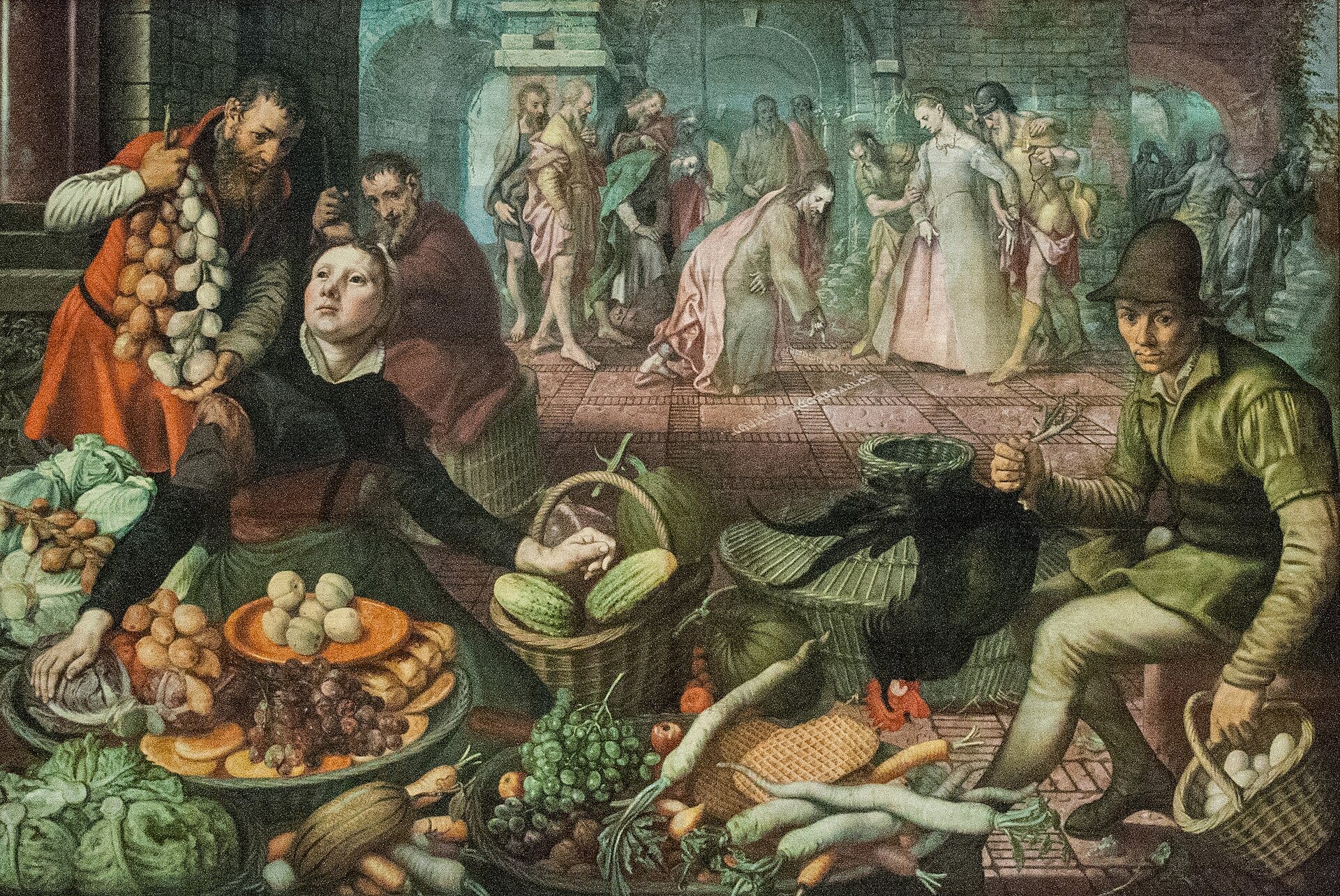Update(!) on the September Gospel Project
A Time and Place to Share What We’re Finding

It seems like quite a few of us are planning to read the gospels this September. The four canonical accounts of the life of Jesus—Matthew, Mark, Luke, and John—are foundational texts of the Western tradition and invite readers of every stripe: anyone with an interest in the Western experience, however defined. But the reach of these writings extends far beyond the West: Christianity colonized Europe, not the other way around—ask the last beleaguered holdouts, the Lithuanians—and its influence is felt not only throughout Europe, but also Africa, Asia, South America, and much of the wider world. Its scope is truly global.
It’s also penetratingly personal, with individual encounters proving a daily feature all across that globe. Whether you strike at this from a historical, literary, or devotional angle, whether you see yourself as a person of faith or not, I’m stoked you’re coming along for the—what is it, an experiment, a journey, a project, a happening?
The Plan
To reiterate, the gospels contain 89 short chapters, easily read within a month at just three chapters a day. Since we’re a few days in, you’ll have to bump that up to four chapters on several days to finish by October 1, but it’s hardly a stretch even if you get started several days from now. Here’s the schedule I shared yesterday; if you start today, you’ll just need to toss in a few more four-chapter days to make it work as is.
Sept 3: Matthew 1–3
Sept 4: Matthew 4–6
Sept 5: Matthew 7–9
Sept 6: Matthew 10–12
Sept 7: Matthew 13–15
Sept 8: Matthew 16–18
Sept 9: Matthew 19–21
Sept 10: Matthew 22–24
Sept 11: Matthew 25–28 (4 chapters)
Sept 12: Mark 1–3
Sept 13: Mark 4–6
Sept 14: Mark 7–9
Sept 15: Mark 10–12
Sept 16: Mark 13–16 (4 chapters)
Sept 17: Luke 1–3
Sept 18: Luke 4–6
Sept 19: Luke 7–9
Sept 20: Luke 10–12
Sept 21: Luke 13–15
Sept 22: Luke 16–18
Sept 23: Luke 19–21
Sept 24: Luke 22–24
Sept 25: John 1–4 (4 chapters)
Sept 26: John 5–7
Sept 27: John 8–10
Sept 28: John 11–13
Sept 29: John 14–17 (4 chapters)
Sept 30: John 18–21 (4 chapters)
So, let’s say you’re in. Then what?
A Time and Place to Share
Several folks who mentioned coming along for the experience asked about a place to join together and discuss what we’re finding. I hadn’t considered that at the start. But I’ve not only considered it since then, I’ve also decided it’s a grand thing to do. So, here’s what I’m thinking. Every Monday, starting this coming Monday, I’ll post an Open Thread. I’ll discuss some of what I’m discovering as I read, and I invite you to jump in the thread and do the same.
Any point is welcome, even critical observations or questions. I only ask we keep things genial and irenic as we go. I had one reader share a DM with me, questioning the value of the entire project, and he had a good point. What I appreciate most, besides the core of his concern, was his recognition that his comment would have been offputting in the wider group. Despite a valid observation, he didn’t want to spoil the conversation.
I don’t want people holding back from honest engagement (by all means, fire away!) but let’s be generous with each other. I find the flip side of the Golden Rule—what Nassim Nicholas Taleb calls the Silver Rule—a healthy and helpful guideline for online engagement: “Do not do to anyone what you yourself hate” (Tobit 4.15). As it happens, that’s always been the vibe of the community here, something for which I’m deeply grateful.
So that’s the plan. On September 8, I’ll post an Open Thread with some of my observations and questions covering Matthew 1–15. I’d be thrilled if everyone would jump in and share their own. Each following Monday, we’ll do the same. One other insight I’ve had is that this could be a great format for other joint reading projects. Could be fun.
Thanks for reading! If you enjoyed this post, please hit the ❤️ below and share it with a friend.
More remarkable reading is on its way. Don’t miss out. Subscribe for free today.
While you’re here, check out . . .




On Christianity colonizing Europe, it is not often recognized by the Western descendants of Europeans, but most of Europe came comparatively late to Christianity, and the missionary activity of the Western Christianity in recent centuries was retracing old ground in Asia and Africa. The Middle Eastern churches - Coptic, Melkite, Assyrian, etc. have a tradition of lineage back to the New Testament, as does Ethiopian Orthodox Tewahedo Church and the Thomas Christians of Kerala State in India.
No need for 'spoiler alerts', right? (LOL)
Thank you for settling on an Open Thread format. I've tried to join other discussions as Chats and find that interface too unruly. I think (hope) this will work out more smoothly.